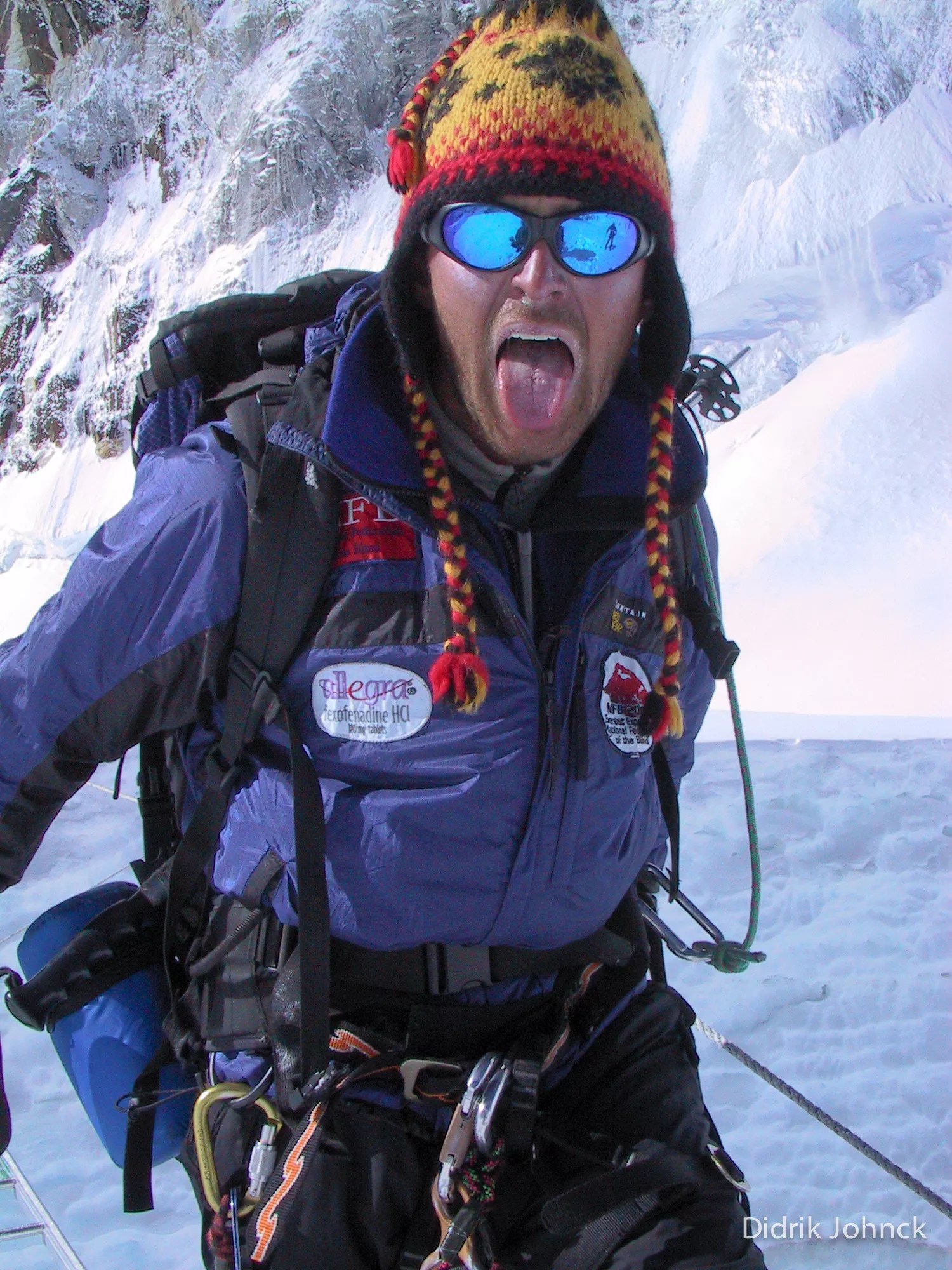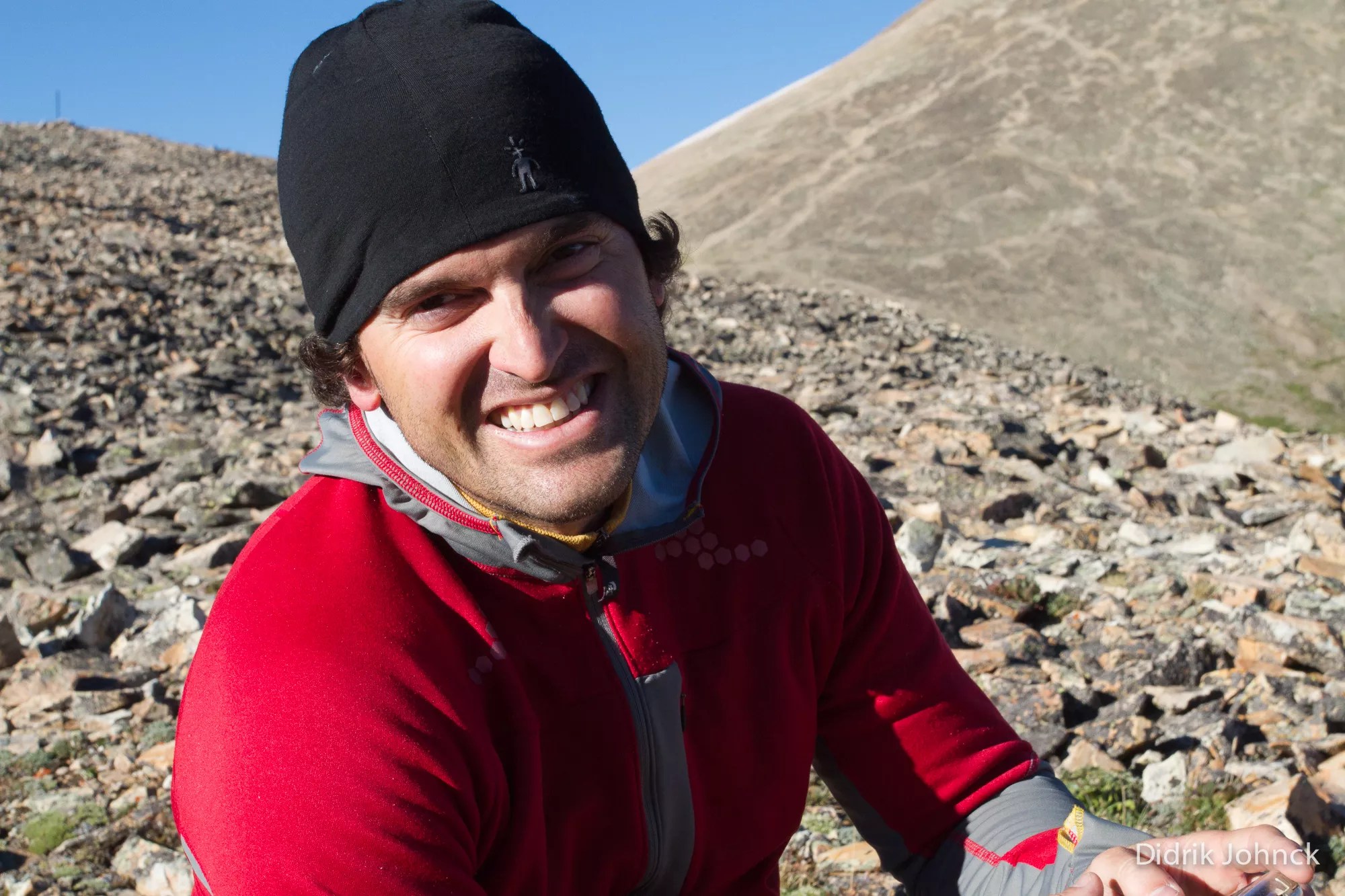
Audio By Carbonatix
Luis Benitez isn’t summiting the world’s tallest peaks as often as he used to, but he’s remained grounded for an important reason. Famous for his many mountaineering feats, Benitez is the first director of the Colorado Outdoor Recreation Industry Office, which Governor John Hickenlooper created in 2015. Under Benitez, the office focuses on four areas of the outdoor recreation industry: economic development, education and workforce training, conservation and stewardship, and health and wellness.
Benitez has lived in Colorado since 1992, when he got a job at the Colorado Outward Bound School. He has also worked as the chief operations officer and chief guide for New Zealand-based Adventure Consultants, and just prior to accepting his position as director of the rec office, he served as a councilman in the town of Eagle and worked at Vail Resorts.
We spoke with Benitez to get a sense for what he does and where he sees the state’s outdoor recreation industry.
Westword: How did you get this job?
Luis Benitez: Fiona Arnold, the director of the Colorado Office of Economic Development and International Trade, and I knew each other from my time working at Vail Resorts. Fiona knew my history, and I had met the governor through a couple other initiatives as a councilman in Eagle. So when this role was hypothesized, I got the call to come down and have the conversation [about whether] I’d be interested in being the first director.
What’s a typical day like for you?
I try to start or end my day by spending time outside, which is how I recharge my batteries. As the days get shorter, I go running or bike by light. I also go to the climbing gym.
I’m also doing whatever I can do to connect to the industry or athletes. On a typical day, you’ll see me down at the State Capitol focusing on these things, whether recruiting a company to Colorado, working with a company that’s here, working with Colorado Parks and Wildlife on conservation and stewardship issues, working with a university on new programs focused on outdoor recreation, or just focusing on public health and wellness.
What’s the current state of the outdoor recreation industry in Colorado?
Very, very strong. We’re an over-$60 billion economy, responsible for over 500,000 jobs. Not a small piece of our ecosystem at all.
Tell us about your upbringing and life.
It’s a classic American story: Italian-American mother, Ecuadorian father. Dad came here for school. It was really important to my dad that we would go to Ecuador every summer, since our extended family is there. The combination of Midwestern and Latin American culture was an incredible way to grow up.
I used to visit my [maternal] aunts and uncles in Arkansas. They knew farming, would chop wood for the stove and heater and got water from the well. And I’m not even that old! And the Ecuadorian side of my family were a ranching family, mostly farming corn, watermelon, avocados and beans. But they also had a trout farm, chicken farm and some cattle.
What was your first experience on a mountain?
When I was fourteen and visiting Ecuador, I was with a mountaineering club that my dad’s brother was a member of. I knew nothing about what altitude can do to your body. I was a rock climber back here in the U.S., and a backpacker, fly fisherman and hunter. But I had never played in the altitude world at all. Kind of like Teddy Roosevelt, I had really bad allergies and asthma when I was a kid. I couldn’t go outside much. I remember what it was like to not be able to breathe. But pressure breathing when doing high-altitude mountaineering is pretty much like pressure breathing with an asthma attack. The breathing component took me to a very comfortable, very familiar place.
It sounds like both sides of your family have roots in the outdoors.
Yes, very much so. I get the question a lot: Why you? How did you get this job? And the things I’m talking about don’t necessarily go on my résumé. I think storytelling is a big component of our industry and who we are. Today in the industry, the things that we focus on and the things we share are less rhetoric, but more how we live and why we live this way.
Teddy Roosevelt was on the front end. He didn’t just use outdoor recreation as a political platform. If you research his life, going all the way back to when he was an asthmatic kid and couldn’t go out much, he deeply believed that conservation and stewardship were connected to economic development. If you look through the lens of his presidency, you can see part of that ethic everywhere: building the Panama Canal, starting the forest service, helping create Yellowstone, creating national monuments. Candidates in Colorado all seem to have this component and recognize that these things matter.
And it’s interesting when looking at President Trump. He’s a New Yorker, a city guy. He doesn’t talk about majestic beauty and the economic benefits of the industry. He’s more into the energy economy.
Ronald Reagan used to ride horses on his ranch. George Bush turned into an avid mountain biker. Barack Obama does kite surfing with Richard Branson. State offices focused on outdoor recreation are being created, which is starting to galvanize more and more. People like me are just trying to help advise and inform that for the governors that we work with.

Luis Benitez preparing to summit Mount Everest, a feat that he’s now accomplished six times.
What have been some of the challenges for your office since Trump became president?
The biggest conversation has been around public lands. They’ve faced this the most in Utah. Nationally, as an industry, this is something that we think about. With any new presidential administration, the first couple years are understanding what the priorities are and how to go about communicating through those priorities. Other than the public-lands conversation, we’re still in the middle of understanding what the administration wants to do. There are a lot of question marks out there.
How is climate change going to affect the outdoor recreation industry in Colorado?
I tell people all the time: Without the correct promotion, protection and utilization of our natural resources, the outdoor industry’s economic engine will start to turn off. If we don’t pay attention to these things, we will harm not only our natural resources and public health, but also this gigantic, robust economy for the U.S.
What are some of your priorities going forward?
My number-one priority is keeping this economy strong in Colorado and making sure that the ecosystem is maintained at a current or greater level. And then also continuing this dialogue around natural resources that drive this economy. We have to think about the next generation of talent – where are they coming from, what their talent looks like. And the public-health concern is tied more closely to questions about climate. Focusing on air quality, temperature gradients for the ski and river industries: It’s all connected to our economy and ecosystem.
What sports do you enjoy?
Oh, boy! I’m known as a mountaineer, so mountaineering, for sure. Within that, climbing, ice climbing, general backpacking. I also hunt and fly-fish, mountain-bike, dirt-bike, stand-up paddleboard, trail run. My wife is a sailor, so I’m trying to learn how to sail a little bit more.
Skier or snowboarder?
[Laughs] Both. The first way I learned how to ski was telemarking. I’m one of those old Outward Bound guys.
Would you like to add anything else about the outdoor recreation industry?
Folks who work in the industry are connected to it because we like to recreate or do a sport. We have an ethic of being a lifelong learner. You don’t just say, “I’ve got my guide or avalanche certification, I’m done.” We’re hard-wired to be lifelong learners because we have to be. Our craft and our skill sets are constantly changing.
People always ask me, What can the industry do for the overall political ecosystem? I think about our capacity to lead right now. The ethics we carry for conservation and stewardship, economics, public health; those are places where we continue to lead and set the agenda. If you can translate those to some larger public offices, that’s our opportunity. That’s what comes next.
